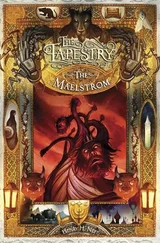"Shit." Desjardins eyed the beads rotating on the display. "So we either stop this thing or we get used to eating from Calvin cyclers for the rest of our lives."
Jovellanos's eyes were bright as quartz. "You don't get it."
"Well, what else could we do? If it cuts the whole biosphere off at the ankles, if—"
"You think this is about protecting the biosphere? " she cried. "You think they'd give a shit about environmental apocalypse if we could just synthesise our way out of the hole? You think they're launching all these cleansing strikes to protect the frigging rainforest ?"
He stared at her.
Jovellanos shook her head. "Killjoy, it can get right inside our cells . Calvin cyclers don't matter. Sulfur supplements don't matter. Nothing we take in does us any good until our cells metabolise it—and whatever we take in, as soon as it gets past the cell membrane…there's ßehemoth, pushing to the front of the line. We've already been way luckier than we deserve. Sure, it's not as efficient up here as it is in a hyperbaric environment, but that only means the locals can beat it back ninety-nine times out of a hundred. And…"
And the dice had just kept rolling, and the hundredth throw had landed square on the Oregon coast. Desjardins knew the story: microbes, in sufficient numbers, make their own rules. Now there was a place in the sun where ßehemoth didn't have to fit into someone else's world. It had begun creating its own: trillions of microscopic terraformers at work in the soil, changing pH and electrolyte balances, stripping away all the advantages once held by natives so precisely adapted to the way things used to be…
It was every crisis he'd ever faced, combined and distilled and reduced to pure essence. It was chaos breaking, maybe unbreakable: little bubbles of enemy territory growing across the face of the coast, then the continent, then the planet. Eventually there'd come a fulcrum, a momentary balance of some interest to the theoreticians. The area inside and outside the bubbles would be the same. An instant later, ßehemoth would be the outside, a new norm that enclosed shrinking pockets of some other, irrelevant reality.
Alice Jovellanos—rager within The System, face of the faceless, staunch advocate of the Rights of the Individual—was looking at him with fire and fear in her eyes.
"Whatever it takes," she said. "Whatever the cost. Or we are definitely out of a job."
He knows something , Sou-Hon Perrault thought. And it's killing them.
She wasn't the only one riding 'flies along the Strip, but she was the only one who seemed to have noticed the stickman. She'd mentioned him casually to a couple of colleagues, and been met with benign indifference; The Strip was braindead gig, a herd to be watched with one eye. Why would anyone actually interact with those cattle? They were too boring for entertainment, too placid for revolt, too powerless to do anything even if this Amitav was being a shit-disturber. They were functionally invisible.
But three people threw rocks at her botfly the next day, and the upturned faces that met her were not so placid as they had been.
Such faith you have in your machines , Amitav had said. You have never thought that perhaps they are not working as well as you think?
Maybe it was nothing. Maybe Amitav's cryptic grumbles had only primed her imagination. After all, a few stonethrowers were hardly remarkable in a population of millions, and almost everywhere on the Strip the refugees milled as harmlessly as ever. Only along the stickman's beat were things even hinting at ugliness.
But were people starting to look—well, thinner —along that particular sliver of the Oregon coast?
Maybe. Not that gaunt faces were unusual on the Strip. Gastroenteritis, Maui-TB, a hundred other diseases thrived in those congested environs, utterly indifferent to the antibiotics that traditionally laced cycler food. Most of those bugs caused some degree of wasting. If people were losing weight, mere starvation was the least likely explanation.
It is only after they begin starving that they see your cyclers for what they are …
Amitav refused to explain what he'd meant by that. When she sidled toward the subject he ignored the bait. When she'd asked him directly he dismissed her with a bitter laugh.
"Your wonderful machines, not working? Impossible! Loaves and fishes for all!"
And all the while, malnourished disciples accreted in his wake like the tail of a smoldering comet. Some seemed to be losing hair and fingernails. She stared back at their closed, hostile faces, increasingly convinced that it was not her imagination. Starvation took time to erode the body— perhaps a week before the flesh began visibly ebbing from the bones. But some of these people seemed to be hollowing out almost overnight. And what was causing that subtle blight of discoloration on so many cheeks and hands?
She didn't know what else to do. She called in the dogcatchers.
128 Megabytes: Hitchhiker
It's grown a fair bit since the old days. Back then it was only 94 Megabytes, and a lot dumber than it is now. Now it weighs in at a hundred and twenty eight, none of it flab. No valuable resources wasted on nostalgic memories, for example. It doesn't remember its pint-sized great-grandparents a million times removed. It doesn't remember anything that doesn't help it survive in some way, according to its own stripped-down and ruthless empiricism.
Pattern is everything. Survival is all. No use for the veneration of progenitors. No time for the stratagems of the obsolete.
Which is a shame in a way, because the basic problems haven't changed all that much.
Take the present situation: jammed into the congested confines of a wristwatch linked into the Mérida Credit Union. There's just enough space to hide in if you don't mind partial fragmentation, but not enough to reproduce. It's almost as bad as an academic network.
It gets worse. The watch is disinfecting.
Traffic is all going one way across the system; that never happens unless it's being chased by something. Natural selection—which is to say, successful trial-and-error by those long-forgotten ancestors—has equipped 128 with a handy little rule in case of such events; go with the flow. 128 uploads into the Mérida node.
Bad call. Now there's barely even room to move; 128 has to split into fourteen fragments just to fit. Life struggles for existence on all sides, overwriting, fighting, shooting off copies of itself in the blind hope that random chance will spare one or two.
128 fends off panicky egglayers and looks around. Two hundred forty gates; two hundred sixteen already closed, seventeen open but hostile (incoming logic bombs; the disinfection is obviously no local affair). The remaining seven are so crowded with fleeing wildlife that 128 could never get through in time. Almost three quarters of the local node has been disinfected already; 128 has perhaps a dozen millisecs before it starts losing bits of itself.
But wait a nan: those guys over there, they're jumping the queue somehow. They're not even alive , they're just files; but the system is giving them preferential treatment.
One of them barely even notices when 128 jumps onto its back. They go through together.
* * *
Much better. A nice roomy buffer, a couple of terabytes if it's a nybble, somewhere between the last node and the next. It's nobody's destination—really, just a waiting room—but the present is all that really matters to those who play by Darwin's rules, and the present looks good.
Читать дальше









